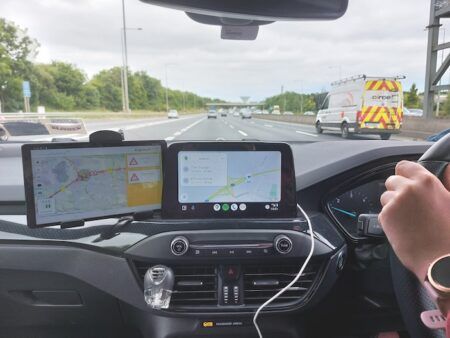The pioneering company that is bringing blockchain technology to connected cars, Colorado-based CyberCar, has successfully completed a demonstration that blockchain-enabled a telematics device for the first time in history.
By bringing blockchain to the connected vehicle, CyberCar delivers a ‘membrane of trust’ around the entire vehicle ecosystem, enabling a profound paradigm shift in connected car technology, facilitating new business models and lines of commerce.
Blockchain developers aim to create a digital environment where users, both businesses and consumers, can securely share driving and autonomous vehicle (AV) testing data, manage ride-share and car-share transactions, and store vehicle usage information that could be used in the setting of insurance rates. Blockchain technology sends information over a network of independent computers, known as a ‘distributed ledger’, intended to ensure that the transaction is secure and ownership rights over the data/property are protected.
With connected cars, the data and information are collected in a computer ‘gateway’ inside the vehicle, then fed into a hosted cloud system. In the recent demonstration, CyberCar made use of the California company CalAmp’s telematics technology to collect data from inside the vehicle by porting its blockchain-optimized Secure Telematics Platform (STP) onto the vehicle gateway. CyberCar then authenticated the data with blockchain on the CyberCar node. Blockchain keeps an unchangeable ledger of data events and is made up of nodes, each with its own immutable record of the same data. This means that even if the data generated from the vehicle were to be altered in any way, the original data collected by CyberCar would remain unchanged and available for verification on a CyberCar blockchain node.
Created last year, CyberCar is a spin-off from Cellport, a company founded in 1993 that secured 25 patents covering cellphone-to-vehicle connectivity, internet connected car, and wireless vehicle security systems. CyberCar envisages blockchain applications for vehicles that range from cold transport, tracking regulated goods, autonomous vehicle connectivity, insurance, enhanced OEM services, and other consumer-based uses. The company believes blockchain may create transparency and trust among users, reduce fraud, and see the reduction of transaction costs applied by third party institutions.
“We are revolutionizing the authentication of data coming off the vehicle gateways,” explained Pat Kennedy, founder and CEO of CyberCar. “Through the use and implementation of blockchain, our development team, leveraging more than 25 years of connected vehicle experience, has created secure, immutable data that’s easily viewed by multiple parties.”




